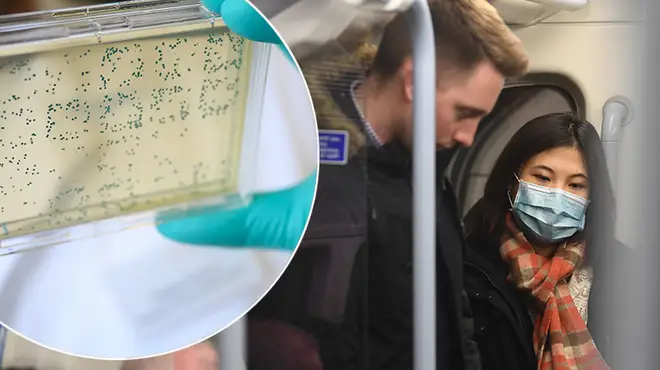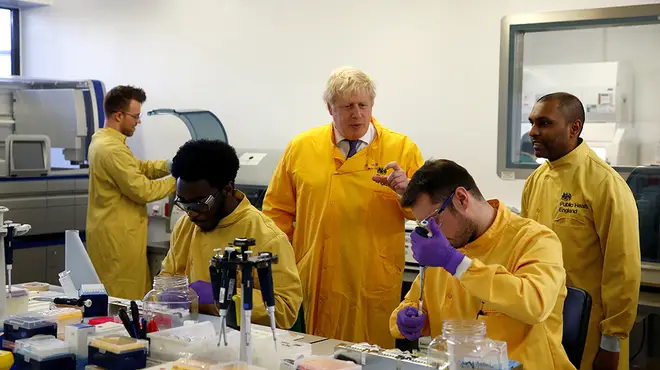
Ian Payne 4am - 7am
5 March 2020, 14:45 | Updated: 7 June 2023, 08:56

Covid-19 has more than 90 confirmed cases in the UK now and scientists now believe coronavirus is mutating, so what does that really mean? And should we be worried?
Coronavirus cases have significantly increased in recent days across the globe with more than 90 cases now confirmed in the UK.
And now, a recent discovery about the covid-19 virus is that it’s beginning to mutate - so what exactly does that mean? And how will the coronavirus mutation effect us?
Coronavirus mythbusting: Correcting fake news about covid-19
It is important to point out research into the strains of coronavirus is in the very early stages but the “very limited” evidence so far suggests that the virus has mutated at least once.

Researchers in China say there is a more aggressive strain, the one that has infected 70 per cent of people tested, and a less aggressive strain which was linked to the other 30 per cent.
Here’s everything you need to know about the coronavirus mutation:
Some have suggested that early mutation in such viruses are quite common and nothing to be alarmed by.
And despite the mutation, it is still believed a vaccine, if achieved, can combat both types of the virus.
However, there is of course the possibility of further mutations which could make finding a prevention for the virus a lot more difficult.
Researchers and scientists will be continuing to pay extra attention to this.
At the moment, the only direct impact are on those that catch coronavirus as it depends on what strain of the virus they get.
The more aggressive virus type has been seen more frequently in Wuhan but researchers say the frequency of that type is decreasing. This type is thought to be the one that can spread more quickly too.
However, researchers stress the early days of the findings.
For now, experts continue to encourage the public to follow simple hygiene rules to prevent spreading and catching coronavirus.